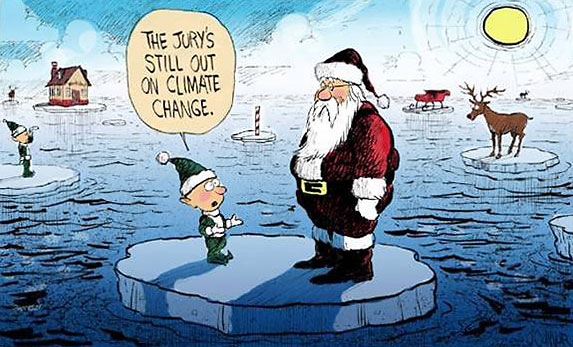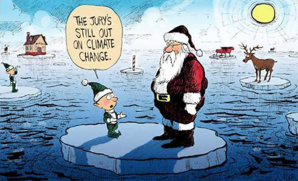Most companies know that instinctively most of us will protect our habitat. Our natural instincts towards saving our environment is being actively countered by corporates and their advertisements simply because, our natural instincts are detrimental to their business model. The reason being that our instinctive determination to protect our natural habitat and to stave off resource depletion and climate change would need dramatic and radical changes to their business models, which is ultimately driving our need to un-sustainable consumption patterns.
The following are four ways in which companies frame their marketing strategies such that the normal layman keeps on buying their products despite his natural instincts.
1. For those who are easily convinced, the usage of the green colour in the packaging along with the splattering of environmentally friendly words, is reason enough, to buy the product. Case in point: Coca-Cola Life is clearly designed to engage someone who cherishes the environment, thus the usage of the word ‘Life’ in the product. However, nowhere is it written on the product, that it is in fact minimizing or reducing the systematic destruction of our unique habitat, or any other words to this effect. The reason there is not enough money to be made selling tap water - the ultimate beverage.
2. The Norwegian energy giant Statoil, is trying hard to convince us that natural gas is the solution for reducing or stopping climate change while totally ignoring the fact that, we need to reduce our dependency on fossil fuel.
The Buy British campaign run by NFU, fans your patriotic instincts by highlighting the superior welfare standards of British meat thereby trying to increase your consumption patterns, while totally ignoring the fact that our excessive compulsive consumption patterns need to be moderated and controlled.
Car manufacturers trumpet the improved fuel mileage of their new fleet, while keeping mum about the need for better mass transit solutions. EasyJet’s fliers beseeches you to “Fly greener, fly easyjet” stating that its new fleet is more energy efficient. Again, it does so while totally disregarding the need to dramatically reduce flight volumes.
In many instances, even governments are complicit in this exploitation of our naivety, by championing incremental changes so long as they do not encroach on our perceived rights to consume the resources of the entire planet.
3. Recycling seems to be our ultimate act of environmental absolution. When asked, ‘What do you personally do so as to tackle climate change?’ the typical response is “I recycle”.
And yet, from an environmental perspective, it is infinitely more preferable, to prevent waste than to recycle. Recycling will only help you so much, but a conscious efforts at reducing our consumption patterns is more likely to bring about a change for the better for the climate and our environment. However, you don’t get to hear this from the corporate world since it threatens their very existence.
Case in point: in order to appear more environmental friendly Topshop rebranded its slogan to – ‘Reshop. Reuse. Recycle.’ In 2007, the oil giant Shell made ludicrous claims of recycling CO2 into flowers. Jigsaw’s current campaign teaches you to “invest” in a new wardrobe, but does not provide any reason as to why buying more of its clothes will reduce the number of garments in landfills.
4. When all else fails, compel your customers to think that they have no other alternative but to buy your products.
Case in point: the food industry keeps highlighting the fact that the requirement for food will double by 2050. Fossil fuel fondly remind us to buy now and to buy more since the demand for their product will only keep going higher and higher.
The very framing of these campaigns suggest that these companies are doing just the opposite of what our natural instincts tells us to do. Instead of telling us to be more ecological conscious, they are in fact addressing our sheep mentally by implicitly telling us that since everyone is doing it, you might as well do it too.
Bringing about change
Efforts by corporates and governments on the climate front have been to fit the problem of climate change, into the continuation of our normal lives and to simply make better choices at the checkout.
The way you can bring about climate change is instead of being lulled into buying goods which you do not need or require, buy only locally produced goods, reduce your carbon footprint, and make a conscious change in your consumption patterns.
We must recognize the ways in which corporates exploit our weak human tendencies. It is high time we are aware of our excessive compulsive buying tendencies and question it at every turn, we need to make conscious choices as to what we are buying, from where we are buying and why we are buying.
References:
http://www.theguardian.com/sustainable-business/2015/mar/17/tricks-companies-convince-consume-address-climate-change
The following are four ways in which companies frame their marketing strategies such that the normal layman keeps on buying their products despite his natural instincts.
1. For those who are easily convinced, the usage of the green colour in the packaging along with the splattering of environmentally friendly words, is reason enough, to buy the product. Case in point: Coca-Cola Life is clearly designed to engage someone who cherishes the environment, thus the usage of the word ‘Life’ in the product. However, nowhere is it written on the product, that it is in fact minimizing or reducing the systematic destruction of our unique habitat, or any other words to this effect. The reason there is not enough money to be made selling tap water - the ultimate beverage.
2. The Norwegian energy giant Statoil, is trying hard to convince us that natural gas is the solution for reducing or stopping climate change while totally ignoring the fact that, we need to reduce our dependency on fossil fuel.
The Buy British campaign run by NFU, fans your patriotic instincts by highlighting the superior welfare standards of British meat thereby trying to increase your consumption patterns, while totally ignoring the fact that our excessive compulsive consumption patterns need to be moderated and controlled.
Car manufacturers trumpet the improved fuel mileage of their new fleet, while keeping mum about the need for better mass transit solutions. EasyJet’s fliers beseeches you to “Fly greener, fly easyjet” stating that its new fleet is more energy efficient. Again, it does so while totally disregarding the need to dramatically reduce flight volumes.
In many instances, even governments are complicit in this exploitation of our naivety, by championing incremental changes so long as they do not encroach on our perceived rights to consume the resources of the entire planet.
3. Recycling seems to be our ultimate act of environmental absolution. When asked, ‘What do you personally do so as to tackle climate change?’ the typical response is “I recycle”.
And yet, from an environmental perspective, it is infinitely more preferable, to prevent waste than to recycle. Recycling will only help you so much, but a conscious efforts at reducing our consumption patterns is more likely to bring about a change for the better for the climate and our environment. However, you don’t get to hear this from the corporate world since it threatens their very existence.
Case in point: in order to appear more environmental friendly Topshop rebranded its slogan to – ‘Reshop. Reuse. Recycle.’ In 2007, the oil giant Shell made ludicrous claims of recycling CO2 into flowers. Jigsaw’s current campaign teaches you to “invest” in a new wardrobe, but does not provide any reason as to why buying more of its clothes will reduce the number of garments in landfills.
4. When all else fails, compel your customers to think that they have no other alternative but to buy your products.
Case in point: the food industry keeps highlighting the fact that the requirement for food will double by 2050. Fossil fuel fondly remind us to buy now and to buy more since the demand for their product will only keep going higher and higher.
The very framing of these campaigns suggest that these companies are doing just the opposite of what our natural instincts tells us to do. Instead of telling us to be more ecological conscious, they are in fact addressing our sheep mentally by implicitly telling us that since everyone is doing it, you might as well do it too.
Bringing about change
Efforts by corporates and governments on the climate front have been to fit the problem of climate change, into the continuation of our normal lives and to simply make better choices at the checkout.
The way you can bring about climate change is instead of being lulled into buying goods which you do not need or require, buy only locally produced goods, reduce your carbon footprint, and make a conscious change in your consumption patterns.
We must recognize the ways in which corporates exploit our weak human tendencies. It is high time we are aware of our excessive compulsive buying tendencies and question it at every turn, we need to make conscious choices as to what we are buying, from where we are buying and why we are buying.
References:
http://www.theguardian.com/sustainable-business/2015/mar/17/tricks-companies-convince-consume-address-climate-change






